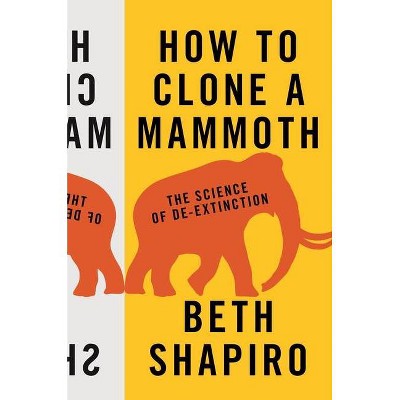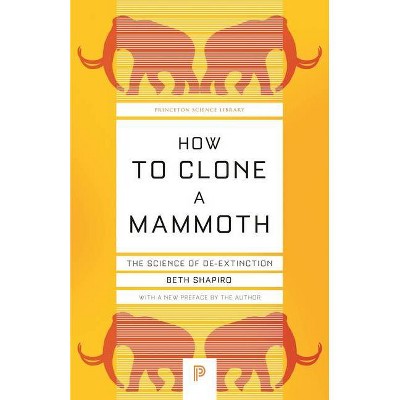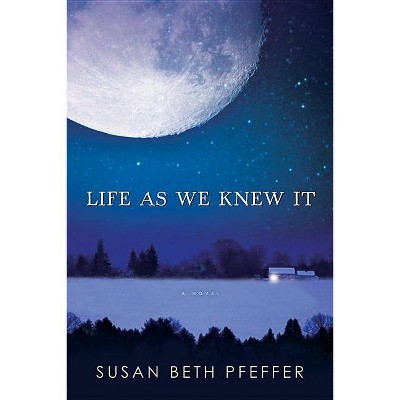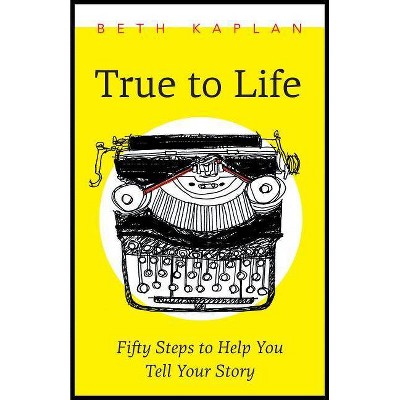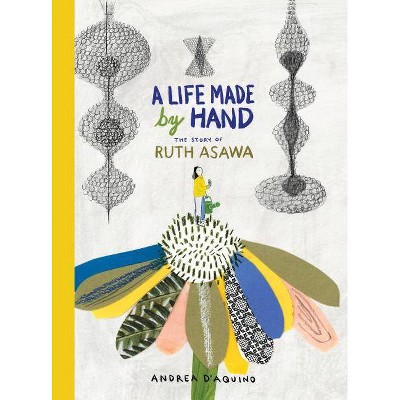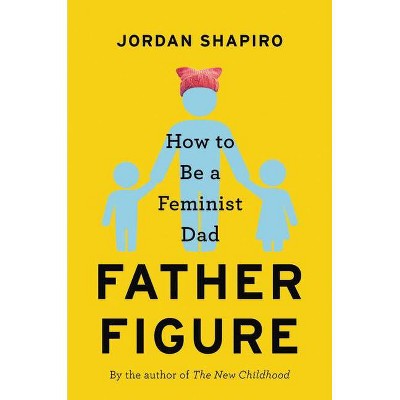Life as We Made It - by Beth Shapiro (Hardcover)
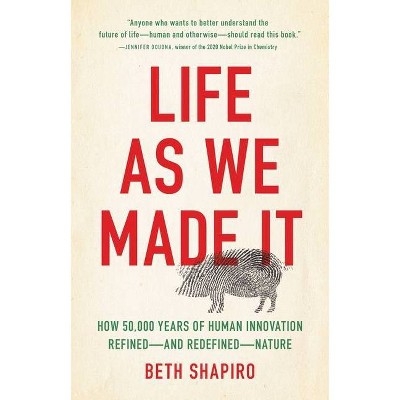
Similar Products
Products of same category from the store
AllProduct info
<p/><br></br><p><b> About the Book </b></p></br></br>"Humans seem to be destroying nature with incessant fiddling. We can use viruses to insert genes for pesticide resistance into plants, or to make the flesh of goldfish glow. We can turn bacteria into factories for millions of molecules, from vitamin A and insulin to diesel fuel. And this year's Nobel Prize went to the inventors of tool called CRISPR, which lets us edit genomes almost as easily as we can edit the text in a computer document. The potential for harm can seem both enormous and inevitable. In Life as We Made It, evolutionary biologist Beth Shapiro argues that our fears of new technologies aren't just mistaken, but they miss the big picture about human history: we've been remaking nature for as long as we've been around. As Shapiro shows, the molecular tools of biotechnology are just the latest in a long line of innovations stretching back to the extra food and warm fires that first brought wolves into the human fold, turning them into devoted dogs. Perhaps more importantly, Shapiro offers a new understanding of the evolution of our species and those that surround us"--<p/><br></br><p><b> Book Synopsis </b></p></br></br><b>From the first dog to the first beefalo, from farming to CRISPR, the human history of remaking nature</b> <p/>When the 2020 Nobel Prize was awarded to the inventors of CRISPR, the revolutionary gene-editing tool, it underlined our amazing and apparently novel powers to alter nature. But as biologist Beth Shapiro argues in<i> Life as We Made It</i>, this phenomenon isn't new. Humans have been reshaping the world around us for ages, from early dogs to modern bacteria modified to pump out insulin. Indeed, she claims, reshaping nature--resetting the course of evolution, ours and others'--is the essence of what our species does. <p/>In exploring our evolutionary and cultural history, Shapiro finds a course for the future. If we have always been changing nature to help us survive and thrive, then we need to avoid naive arguments about how we might destroy it with our meddling, and instead ask how we can meddle better. <p/>Brilliant and insightful, <i>Life as We Made It </i>is an essential book for the decades to come. <br><p/><br></br><p><b> Review Quotes </b></p></br></br><br>"<i>Life as We Made It</i> presents a compelling vision that encourages us to be more open-minded." <br> --<i><b>New Statesman</b></i><br><br>"For anyone curious about the past, present and future of human interference in nature, <i>Life as We Made It </i>offers a compelling survey of the possibilities and pitfalls. Shapiro is an engaging, clear-eyed guide, leading readers through the technical tangles and ethical thickets of this not-so-new frontier. Along the way, the book glitters with lively, humorous vignettes from Shapiro's career in ancient DNA research. Her tales are often rife with awe." <br> --<i><b>Science News</b></i><br><br>"A detailed exploration of some of the most influential technologies of our time. It also offers a tantalising glimpse of what might be in store in the future, when humanity starts to mix things up all over again."--<i><b>The New Scientist</b></i><br><br>"In her thoughtful and entertaining <i>Life as We Made It: How 50,000 Years of Human Innovation Refined--and Redefined--Nature</i>, Beth Shapiro argues that humankind's profound and protracted interventions have blurred the distinction between the natural and artificial worlds." <br> --<i><b>Wall Street Journal</b></i><br><br>"Shapiro takes readers on a succinct and compelling journey through historical events, inventions, and decisions that have forever changed the course of life on Earth... In what is perhaps the greatest accomplishment of <i>Life as We Made It</i>, Shapiro clearly articulates key questions whose answers will define how we think about and use the power we now yield."--<i><b>Science</b></i><br><br>"Unmissable."--<i><b>Reaction</b></i><br><br>"Humans are a force of nature. This paradoxical thought is the glue that holds <i>Life as We Made It</i> together. But it is not the environment changing effects of human activity on land, sea and air that intrigue Beth Shapiro--or not directly. Instead, she looks at how people have altered living organisms themselves, exerting an evolutionary pressure on other species... In an age when 'technology' has become synonymous with the information kind, it is worth being reminded that other sorts are available. And with one of them people can, if they so choose, remake themselves." <br> --<i><b>The Economist</b></i><br><br>"Shapiro's point, throughout the book, is that we've always meddled with nature; the answer is not to stop meddling, but to meddle better... With this clear-eyed account of its humanitarian potential, Shapiro has done the field a great service." <br> --<i><b>Nature</b></i><br><br>"The scientific study of ancient DNA preserved in extinct species and the possibility of de extinction make for truly fascinating reading. Employing just the right amount of paleontology, history, genomics, and archaeology, Shapiro warns that we stand on the precipice of fashioning a new, unnatural nature. The risk of messing up the future of other species and even the planet itself looms large." <br> --<i><b>Booklist</b></i><br><br>"[a] fun-filled survey...Shapiro's anecdotes are full of energy...Perfect for fans of Mary Roach, this is science writing with much to savor."--<i><b>Publishers Weekly</b></i><br><br>"In this brilliant new book, biologist Beth Shapiro tells the incredible story of how we're remaking much of nature and lays out a thoughtful path for how we can survive and thrive by learning to more wisely apply our god-like powers." --<i><b>Jamie Metzl, author of Hacking Darwin</b></i><br><br><p>"A brilliant combination of science, natural history, and first-person experience, <i>Life as We Made It </i>shows how our species has been manipulating nature for nearly as long as we've been around. Anyone who wants to better understand the future of life - human and otherwise - should read this book."</p>--<i><b>Jennifer Doudna, winner of the 2020 Nobel Prize in Chemistry</b></i><br><br><p>"For the past two decades, Beth Shapiro has pioneered using ancient DNA to understand the diversity of life. In <i>Life as We Made It</i>, her twin passions for cutting-edge science and natural history leap from every page. This book will entertain and challenge you to think in new ways about our role in the future of life on Earth."</p>--<i><b>Neil Shubin, evolutionary biologist and author of Your Inner Fish</b></i><br><br>"Shapiro chronicles the many ways humans have influenced the evolutionary trajectories of other species, from prehistory through the present day. Tools like CRISPR are just the latest way we have shaped the life on this planet. She effectively makes the case that our use of evolution as a tool is ethically acceptable, if done carefully and with informed consent."--<i><b>Emma Marris, author of Wild Souls</b></i><br><p/><br></br><p><b> About the Author </b></p></br></br><b>Beth Shapiro</b> is a professor of evolutionary biology at the University of California, Santa Cruz, where her work has centered on the analysis of ancient DNA. The author of <i>How to Clone a Mammoth</i>, which won the AAAS science writing award, she lives in Santa Cruz, California.
Price History
Cheapest price in the interval: 26.99 on November 8, 2021
Most expensive price in the interval: 26.99 on December 20, 2021
Price Archive shows prices from various stores, lets you see history and find the cheapest. There is no actual sale on the website. For all support, inquiry and suggestion messages communication@pricearchive.us
